Forty years of institutional antisemitism in the Islamic Republic of Iran has seen the country’s Jewish population decrease to a third of its pre-1979 size. Jewish people have been forced to flee their homeland by a toxic combination of ingrained suspicion, official marginalization, virulent antisemitic propaganda and the securitization of their daily existence. The extent of the Iranian regime’s deliberate persecution of Jews was laid bare in a recent special report for IranWire, Antisemitism and Holocaust Denial in Iran: A Review of State Narratives Since 1979.
We caught up with Shadi Sadr, a lawyer, human rights activist and executive director of the NGO Justice for Iran, about this pattern of behavior by the Iranian state and its impact on Jewish people in the country.
***
For 42 years now, the ruling Twelver Shiite clergy in Iran and media and security institutions under their command have openly discriminated against the Jewish community at large. Today there are just 20,000 Jews living in Iran: less than a third of the pre-1979 population and mostly based in the major cities of Tehran, Isfahan, and Shiraz. Shadi Sadr, a human rights lawyer and co-founder of Justice for Iran, spoke to IranWire about her impressions on why this has come about, and the impact to Jews still living in Iran today.
Sadr lived in Iran for decades before she was forced to flee because of her advocacy work, which later saw her sentenced to prison in absentia in 2020. “Let me start here,” she said. “During all my years in Iran, I studied, , I was present in the community, and my activities were not limited to a specific area, city or region. I encountered Christians, Baha'is and Sunnis.
“On the radio and television, for example, I’d hear that such and such sports figure was a Christian, such-and-such a Zoroastrian actor. But not even once did I hear about a Jew – in business, the social sphere or politics – except for the name of the MP for the Jewish community in the Iranian parliament.
"Personally, with the exception of a few antique shops on Manouchehri Street [in Tehran], which I was told belonged to members of the Jewish community, I did not meet any Jews. I believe that the policies of the Islamic Republic, especially in arenas that impact on public opinion, has cut off Iranian Jews from social life and citizenship."
The experience of being a Jew in the Islamic Republic of Iran, in Sadr’s view, goes beyond marginalization. While constantly promoting hostile, antisemitic falsehoods, Holocaust denial and conspiracy theories, the Islamic Republic seeks to equate Jews unproblematically with Zionism and the state of Israel. This makes them all the more vulnerable to securitization and affronts to their liberties, giving them all the more reason to emigrate. “The figures show that before the revolution, Jews played a role in various Iranian commercial, social, economic, political and cultural fields,” Sadr says. “But then the revolution came. The state began to spread [anti-Jewish] hatred by any means possible.”
We also asked Sadr whether the antisemitic content promoted by the Islamic Republic through the IRIB, other media, cultural institutions and “academic” publications have a tangible effect on public opinion. “I’ve thought a lot about this,” she said. “Let me answer with another example.
“The Islamic Republic has long denied [the rights of] sexual minorities in society. Words such as 'deviant' were used to identify homosexuals, and the term 'patient' was used to label transgender and non-binary people. In the literature and the media, political officials and religious figures were also constantly accusing these people of being sinful and misleading. What was the outcome? An increase in violent behavior of citizens influenced by this content, toward this minority community. They were continually being beaten up and even killed on the streets – even by their own families.
“What about the Jewish community, which doesn’t even have a presence in Iranian social life at the moment? Perhaps it would be better to ask whether in the face of such hatred, which has subconsciously affected the minds and thought processes of many Iranian citizens, whether the Jewish people would leave Iran or not even were the Islamic Republic gone.
“Can people whose parents were born in Iran return home now in peace and safety? If this amount of hatred affects even just that part of the society that follows the policies of the Islamic Republic, what would the consequences be for Jews who returned? In the Islamic Republic, neither insults nor violence against religious minorities are prosecutable offences, and the Iranian legal system and civil rights [mechanisms] are not very effective in the case of religious minorities – even those recognized in the Constitution."
Holocaust denial has also been a mainstay of discourse in the Islamic Republic since the beginning, but crystallized as a policy in the Mahmoud Ahmadinejad era. “In many countries,” Sadr said, “racism is not a crime and falls within the framework of freedom of expression. But if it leads to violent action against a group, it becomes a serious crime. Holocaust denial is defined as a public crime in a limited number of countries, but if Holocaust denial leads to violence against Jews at the community level, it is a serious and significant crime and can be prosecuted. In Iran, however, no form of racism carries a criminal penalty – even if it leads to the death of a citizen.”
Related coverage:
George Haroonian: Antisemitism is Inherent to the Islamic Republic
Antisemitism and Holocaust Denial in Iran: A Review of State Narratives Since 1979
Battling COVID, Iran Regime Makes Jews its Bogeyman
Debunking the Rothschilds Conspiracy Theory: From Frankfurt to Tehran
Khamenei’s Open Dream: Finishing Where Hitler Left Off
Khamenei’s Loyal Penman Links Quran to Holocaust Denial
Decoding Iran’s Politics: Anti-Semitism in Iran
Iranian State Media Decries Biblical Animated Film as “Zionist Infiltration”
Anti-Semitism and Neglect Have Destroyed a Historical Jewish School in Isfahan
Vandals Attack Synagogues in Shiraz
Abadan Jewish Cemetery in Ruins
Crime and Denial, or Why Does the Leader of Iran Deny the Holocaust?
Eye for an Eye Justice, But Not For Jewish Victims in Iran
''Jews Use Sorcery for Espionage''
Weekly Khamenei Report: Against Freedom of Expression, For Holocaust Denial
Top Saudi Official Visits US Holocaust Museum
Crime and Denial, or Why Does the Leader of Iran Deny the Holocaust?
Iran’s Cartoon Goons: Behind the Scenes of the Holocaust Cartoons Exhibition
visit the accountability section
In this section of Iran Wire, you can contact the officials and launch your campaign for various problems




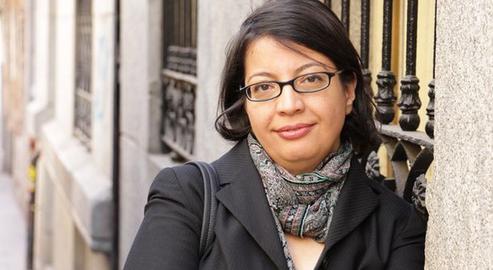


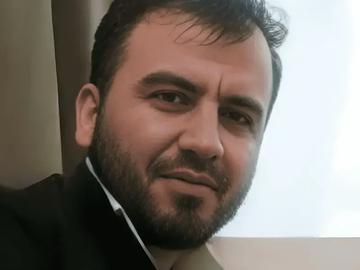





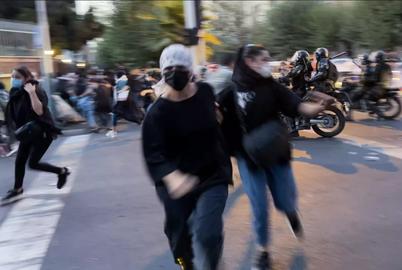
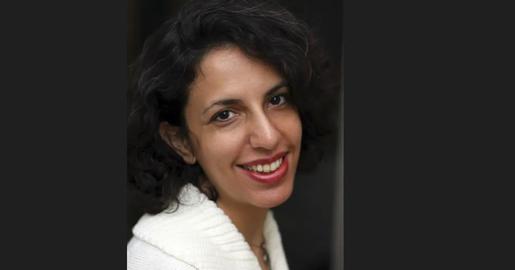
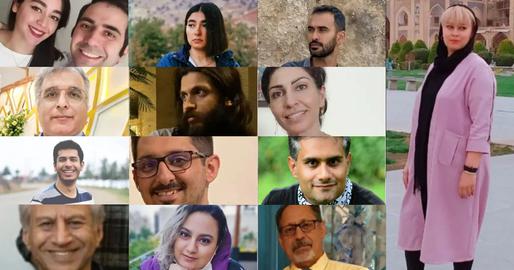

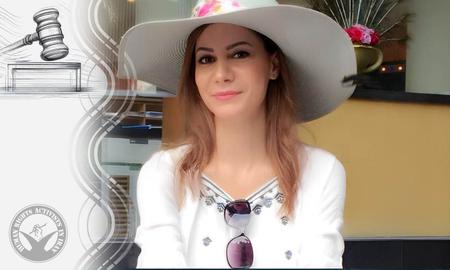


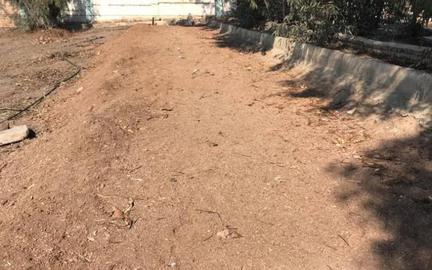

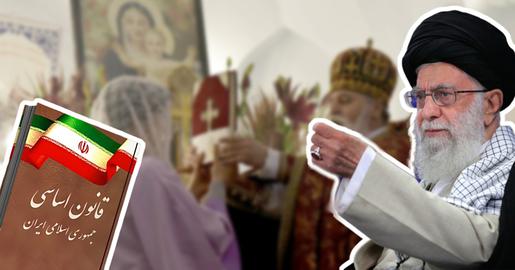

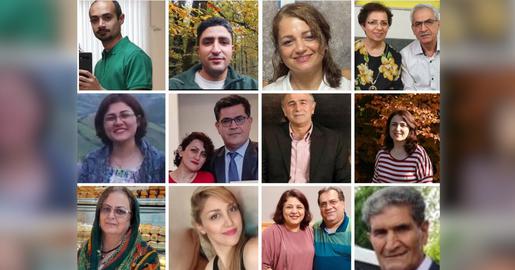
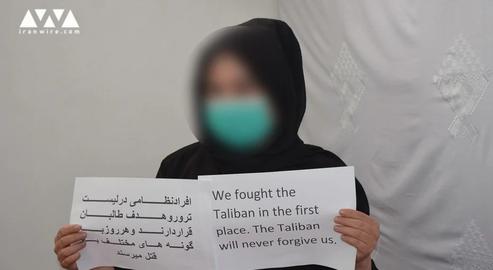
comments